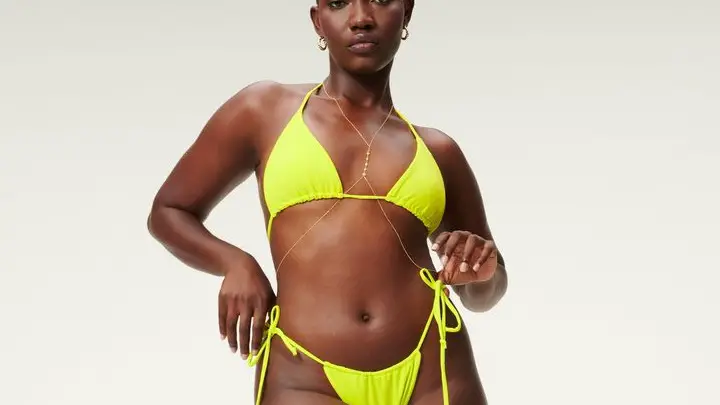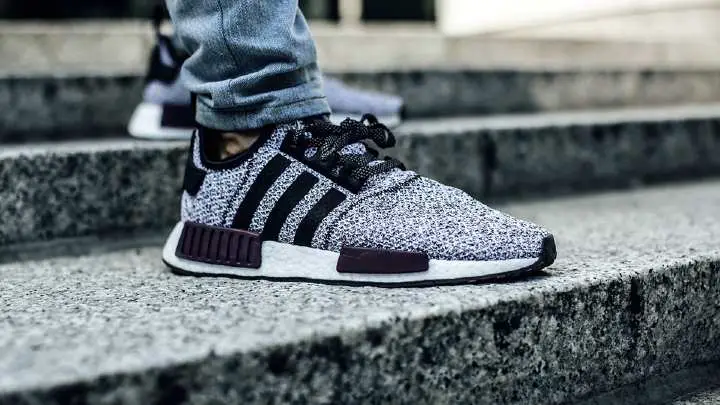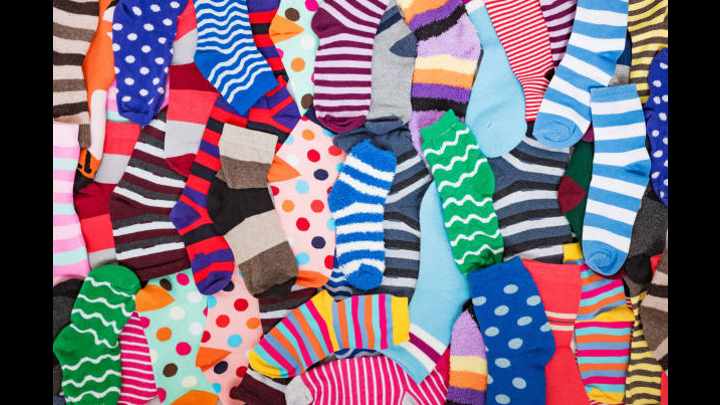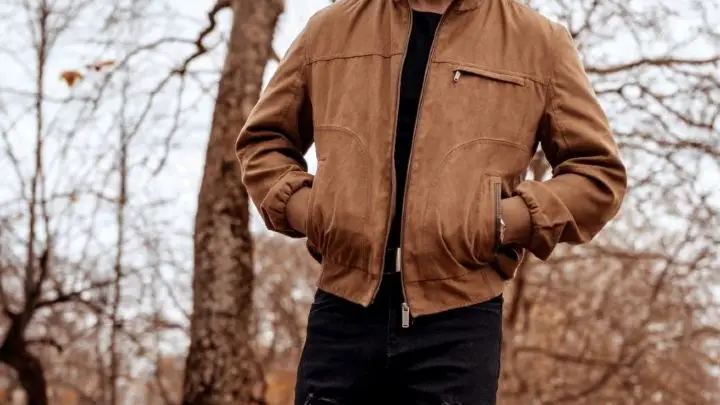Losing hair is a natural process. About 50-100 strands fall off every day, and more when we wash our hair. But when you start to notice a handful of amounts falling off every day? You are experiencing thinning hair, and this is abnormal.
Hair loss is caused by many things. It could be your hair reacting to a product you are using, for those of you who religiously monitor and use several products at a time. Another is experiencing thinning hair.
This thinning hair is more complex and it requires you to know the root of the problem before trying to fix it. If you are experiencing thinning hair, here are likely causes and treatments suited to restore your hair.
Causes of Thinning Hair
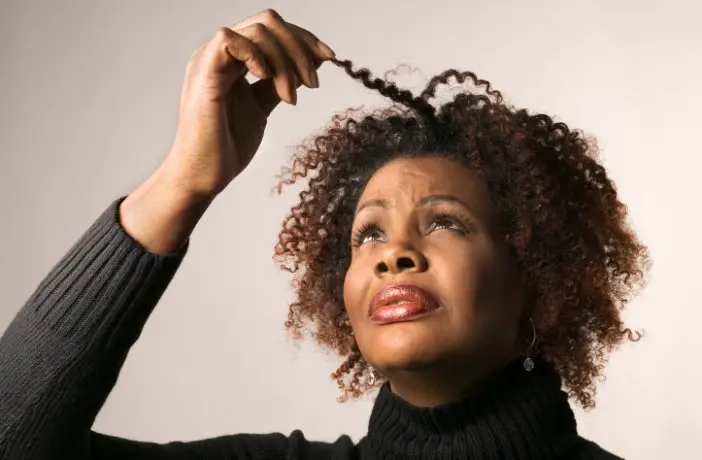
Thinning hair, a common phenomenon with all women, not just blacks, means excess shedding of the hair causing it to thin. It can happen with women with both relaxed hair and natural hair.
1. Traction alopecia
The most common cause of thinning hair is our hairstyle. Maybe you are applying too much tension to your hair with your hairstyles like tight braids, ponytails, weaves, and others. This type of hair loss is called traction alopecia.
It happens when the hair is pulled tightly from the scalp which causes the bulb at the roots to pop out making the strand lost.
You might not notice while your hair is still secured with the hairstyle, but once it comes off, you notice you have lost lots of hair more than the natural shedding. When this happens, it is traction alopecia.
2. Androgenetic alopecia
Another cause of rapid hair loss is androgenetic alopecia. This has to do with the body’s reaction than external force. Androgenetic alopecia is a common autoimmune condition where the body’s immune system attacks healthy hair, causing them to fall out in patches in the scalp.
The new hair that grows is usually thinner than the normal hair strands because the pores are shrinking.
Around 30 million women suffer from this condition in America. Androgenetic alopecia usually happens to women between the ages of 50 to 70, according to the America Dermatology Association.
However, for younger women, it could be caused by genetics, nutrition, stress, or even hormone changes. When you are experiencing androgenetic alopecia, it is best to consult a professional and get advice and treatment.
3. Pregnancy
During pregnancy, the estrogen hormone is increased, and this can lock the hair growing and shedding phase. The hair would stay stagnant for the nine months duration of the pregnancy. After giving birth, lots of hair starts to fall off.
This reaction, though scary is normal, your hair is just trying to go back on its natural course. Hair loss will end at most six months into postnatal care.
4. Stress
Stress is another reason for thinning hair. When your body is handling more than it should, one of the ways it reacts is through the hair. You might experience severe thinning hair when you are stressed.
Extreme emotional or physical stress can cause the hair follicles to lose hair. This process is called telogen effluvium. The hair switches from a growing phase to a resting face, thus shedding more hair.
5. Medication
Another reason for hair thinning is a change in medication. Some medications have severe reactions and thinning hair can be a side effect. You have to make sure to read the label of the medications you are purchasing to know if it causes hair loss.
6. Iron deficiency
Iron is an essential mineral when producing hair protein that helps hair growth. If your body is deficient in iron, your hair is most likely to suffer or it. To confirm your iron deficiency, you will need to conduct a blood test and then start the correct treatment.
7. Hypothyroidism and hyperthyroidism
The thyroid glands help regulate the body’s metabolism by controlling the production of proteins and tissue use of oxygen. Thyroid imbalance can affect the protein balance in the hair, causing the hair follicles to shred. If hypothyroidism is not treated, it could lead to anemia.
Other causes of thinning hair include age, dramatic weight loss, hormonal imbalance, bacterial infection, vitamin B12 deficiency, and many other rare reasons.
How to Treat Thinning Hair
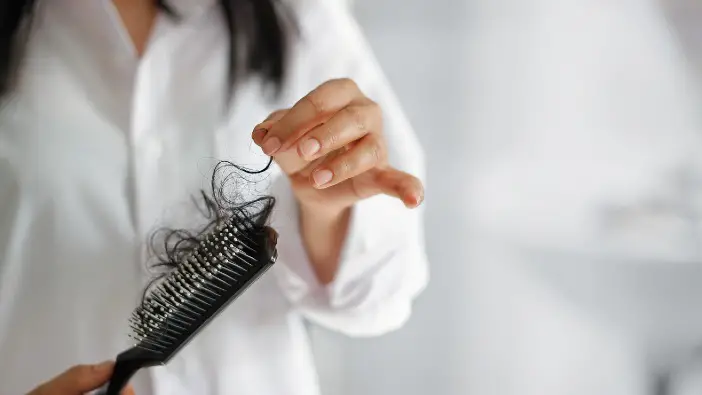
Once you notice you are shredding and have found the root cause of your hair condition, you can now proceed to take care of it and nurture it back to good health. These tips are:
1. Massaging
Massaging your head helps blood flow in your scalp and hair follicles. This will aid hair growth. Keeping your head in a relaxed state will immensely improve the circulation of blood, so be sure to finely press into your scalp. You can massage with or without oil, but oil massage is best.
2. Hot oil treatment
This is great for thinning hair because it strengthens and nourishes the hair scalp. Hot oil treatment is used to strengthen your hair follicles from the scalp, thereby restoring your hair’s volume.
3. Deep condition
Sometimes the hair is dehydrated and needs moisture. Deep conditioning your hair regularly could help you get back on track and stop thinning hair.
SEE: How to Buy the Best Conditioner
4. Protective styling
Keeping your hair in protective styling will help immensely in protecting your hair follicles from shedding because your scalp wouldn’t be pulled too tight.
5. Eating a good diet
Changing your diet to a nutrition-rich one will help your thinning hair grow, especially if you are protein or iron-deficient. You should eat foods with lots of zinc like oysters, nuts, dairy, eggs, whole grains, vegetables, and many more.
6. Take your vitamin supplements
Taking your vitamins and other supplements will help you cover up the nutrient that is left missing in your body system. You can also take hair supplements that would provide the right protein nutrients needed for hair growth.
7. Use natural hair remedies
Using natural hair remedies like garlic oil and aloe vera that have enzymes that promote natural hair growth is good.
Garlic oil helps prevent bacteria or fungi from living in your hair, while aloe vera also increases the scalp’s pH level and moisturizes the hair. You can add them to your shampoo or conditioner to see the best results.
8. Use products
You can also use products specifically made to battle thinning hair or hair loss. Products like Olaplex Hair Perfector No 3 Repairing Treatment helps to thicken your hair roots by exfoliating and cleansing the scalp. You can deep condition with the Root’s Naturelle Virgin Hair Fertilizer that helps to make your hair grow faster.
You can also use supplements that help DHT inhibitors and anti-stress adaptors rebalance hormone levels and many other good products for thinning hair growth.
SEE: Use These 12 Best Shampoo and Conditioner Sets for Better Hair Care
Who to Treat Thinning Hair
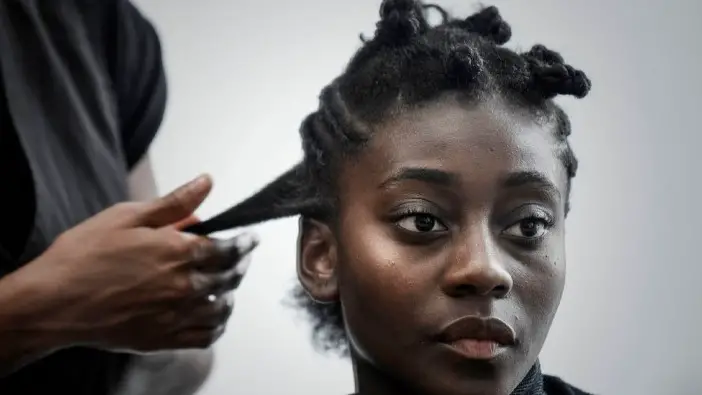
1. Visit your hairdresser
When you notice you are experiencing thinning hair, your first stop is to your hairdresser. They are the first treatment center you see. Sometimes the thinning hair might not be as dramatic as you think. It might be simple traction alopecia happening. Good fixing and styling will put your hair back on the right track.
2. General practitioner
If the problem is bigger, you can see your general practitioner and look at your medical history, there might be clues to your thinning hair problem there. Your medication will also be changed to another if it has shown it is causing a side effect of thinning hair.
If the problem does not exist in your medical records, you might be referred to more specialized professionals that deal with hair loss.
3. Dermatologist
You might see a dermatologist who specializes in skin treatment. The scalp is part of the skin. If there is an infection on the scalp, for example, they are the right people to treat it.
They can also identify the root problems and weaknesses of your hair and prescribe the proper medication and treatment for thinning hair. Dermatologists can put you on a path to normal hair growth again.
4. Trichologist
Another person you can see is a trichologist. They are experts in scalp treatment. Even though they can’t provide you with a medical prescription for your hair treatment, they can help in identifying the cause of it.
Trichologists can also advise you to go on a diet or lifestyle change when they notice what causes your hair falling out. This can lead to a reversal of the hair thinning effects.
5. Endocrinologist
If you are not seeing the above two, an endocrinologist is another professional help you can seek. They are hormone experts and will treat your thinning hair if it has been discovered you are suffering from hormonal imbalance.
A lot of people suffer from the overproduction of DHT hormone (dihydrotestosterone) and an endocrinologist can treat this.
6. Nutritionist
Then finally, you can see a nutritionist. This happens when stress, changed diet, or dramatic weight loss is a cause of thinning hair. A nutritionist will put you on a diet plan that would help or give you additional supplements for your hair to grow back.
SEE: Tips That to Aid Your Healthy Natural Hair Growth
Best Hairstyles for Thinning Hair
It is best to stay away from those tight braids and straight weaves when you are experiencing thin hair. You can go on a low cut or start all over when you are trying to heal your scalp.
For relaxed hair, you can try a bob hairstyle to make your hair look thicker. And if you are into long hair, wig it.
It is best to protect your hair by using wigs rather than weaving them into your hair. When you use wigs, your hair is covered in a protective cap and kept firm and in place, and when the day is over, you let your hair breathe.
Frequently Asked Questions
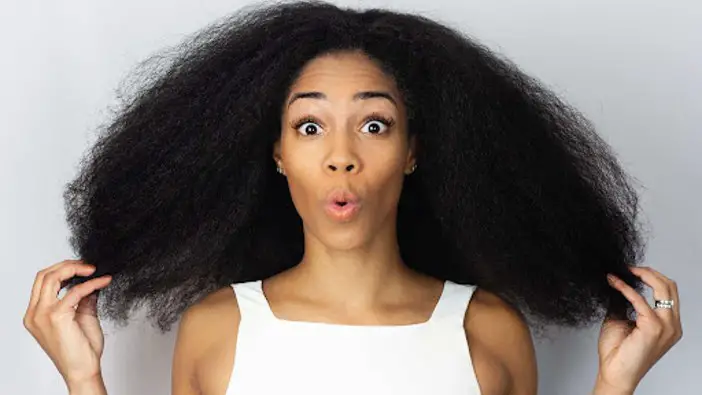
Can you self-treat thinning hair?
Yes, you can. You can self-treat thinning hair if the cause is not medical-related. Furthermore, if the thinning hair is not progressing as fast as usual.
However, you should see professional help if the thinning hair is not treating.
What is the best shampoo for thinning hair?
Bellisso Biotin Shampoo and Conditioner Set for Hair Growth is great for thinning hair. The shampoo helps to thicken your hair and prevent hair loss.
Although there are other shampoos to help treat thinning hair, you can use this shampoo and conditioner set to treat the early stages of thinning hair.
Can thinning hair stop naturally?
Yes, it can. You can stop experiencing thinning hair if the cause is found and treated.
That’s why before treating thinning hair you have to get to the root cause to stop it permanently. When you treat the root cause, your thinning strands would stop.
Conclusion
Having thinning hair is not as frustrating as it may seem. Sure it would look bad, but the most important thing is knowing what to do. When you know what to do, action can be taken and the process of healing can be started.
Thanks for reading.
Loved this article? Africana Fashion provides wellness articles to improve your healthy lifestyle.

